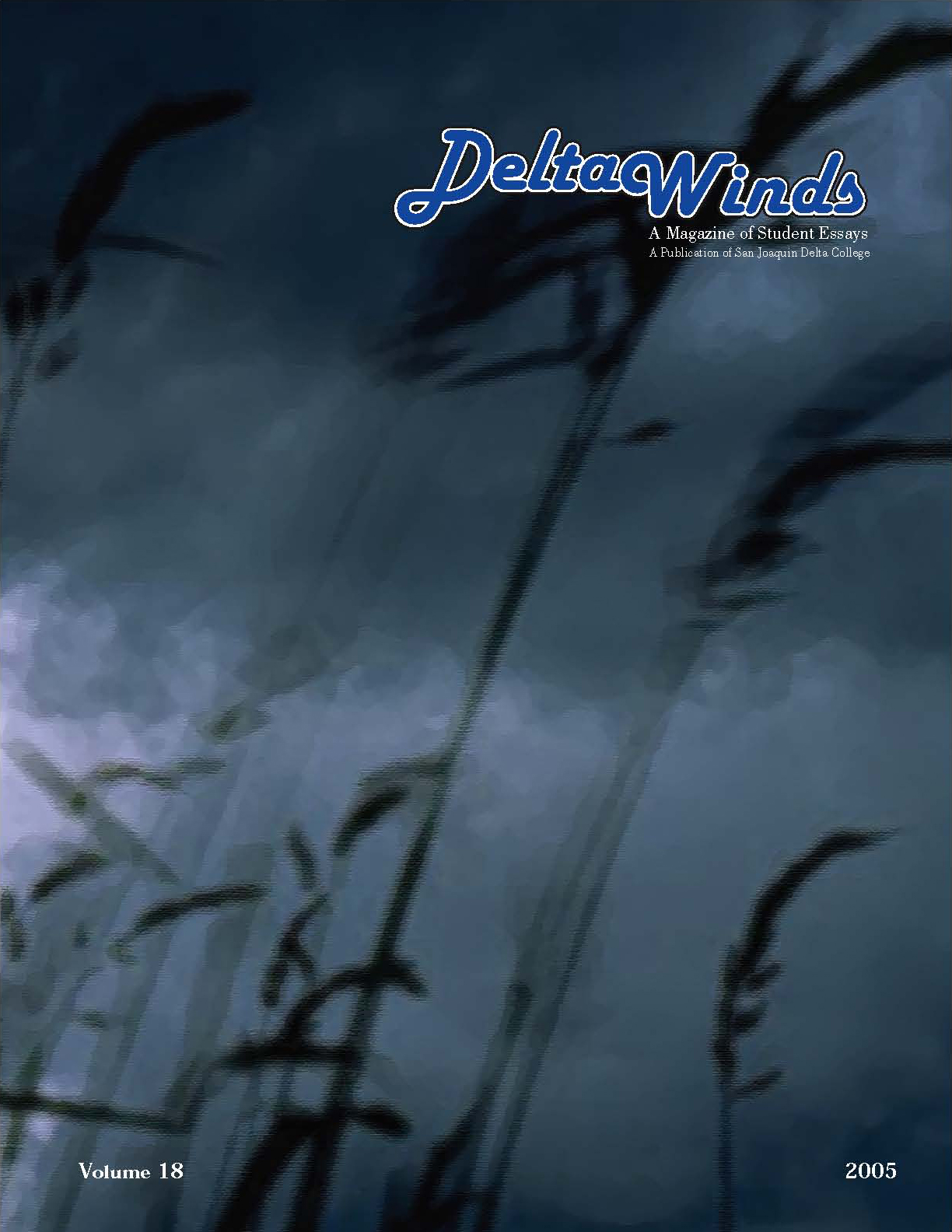The Opportunity to Learn
 Delta Winds: A Magazine of Student Essays
Delta Winds: A Magazine of Student Essays
A Publication of San Joaquin Delta College
2005
The Opportunity to Learn
Hannah Abramson
From the fourth grade up until I started attending Delta, I was home schooled. My mother was my teacher, and I believe she did an excellent job with her role, though some people with more conventional ideas of education might disagree. She let my siblings and me study whatever we wanted, and she rarely pulled out a textbook. She taught us the basics of English, math, and history, but always let us focus on what interested us the most. My older sister was interested in animals, so she studied their habits and lifestyles and did projects on their different habitats; my brother loved video games, so he studied computers and science; I had a passion for making up stories, so my mother let me focus on writing and reading everything I could get my hands on.
After spending time with people my own age, people who went to "real" school, I have come to believe that my mother's method of teaching is the reason I know things like what a negligee is and what happened at Hiroshima and Auschwitz. Other seventeen-year-olds went to high school, where they had history and English and geography forced upon them every day, and now they don't know these things. On campus, I work as an English tutor in the Shima Writing Lab, and sometimes I am amazed and horrified by what people-people whose first language is English, people who did go to high school-don't know. It is appalling to think that some students don't know where Russia is or how to spell the word "collapse." But, while I am shocked that they don't know, I still must ask myself, should they know?
It is important for people to leave high school and go into the real world knowing certain things. English and math, for example, are subjects that will benefit students nearly every day of their lives. When will they ever need to know that Jordan is a country beside Israel, though, and not a city within it? Perhaps the only reason I know this is because I lived in Israel, and I am proud to know it, but I cannot think of a single instance when I needed to know it. On one hand, I do think that it is a sad time when high school graduates don't know the cities of Iraq or where California and Ohio are, but on the other hand I think that students should be taught what they are interested in.
Apparently, many people believe that students should be force-fed this kind of information, and I don't believe that this is the right way to teach. I know who Robert Frost is, but if I'd had to learn his work in a high school literature class, I would probably try my hardest to block him out of my memory. Perhaps the reason today's students know so little is that people want to teach them too much; forcing information down students' throats isn't going to make them learn. I can read, write, and get to the top of my class because English is something I was interested in, and I was given the chance to study it at my own pace, never having anything forced upon me. My brother, who never cared for writing but would rather play video games, was allowed to study computer sciences, and now he excels in science and computer animation, and because of all the strategy guides and technical manuals he's read, he can read and write as well.
Students might know less than they used to, and, in some cases, less than they should. However, if students are taught the basics, they can then focus on the subjects they feel passionate about. Given the opportunity to study what they find interesting, students will want to know and learn more. Give students a chance: don't force-feed them, and they will excel.






